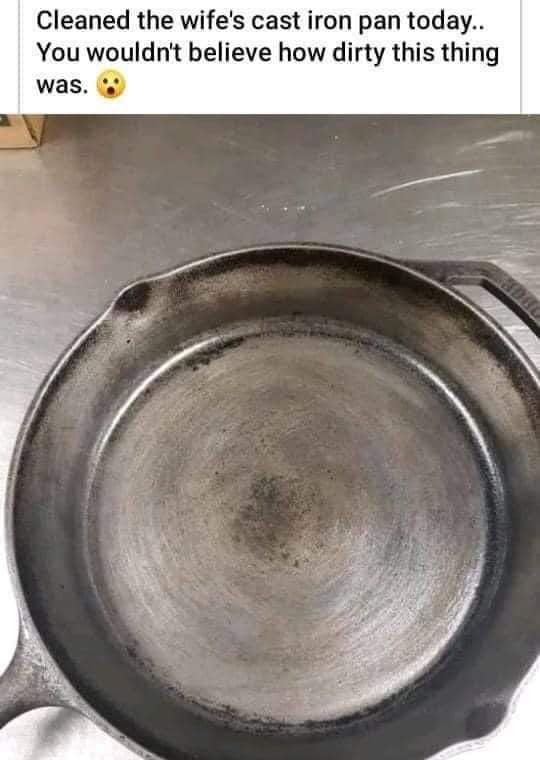this post was submitted on 13 Apr 2024
712 points (98.1% liked)
Memes
46333 readers
2479 users here now
Rules:
- Be civil and nice.
- Try not to excessively repost, as a rule of thumb, wait at least 2 months to do it if you have to.
founded 5 years ago
MODERATORS
you are viewing a single comment's thread
view the rest of the comments
view the rest of the comments

In other words: Linseed.
Though I wouldn't go so far as to say "need". Linseed works much better, builds a nicer patina very quickly, but pretty much any fat works. In practice mine is getting seasoned with olive oil because that's what I have standing around in the kitchen.
Proper technique is much more important in practice: First and foremost heat empty, then add oil and fry, then clean, ideally without degreasing (boiling water and a spatula do wonders), then (if necessary) add a drop of oil and try to rub it off with kitchen tissue, then put back on the stove to dry and maybe polymerise a little. Always have that thin layer of oil otherwise the pan is going to rust.
You can have a perfect patina, if you don't heat up the pan before putting stuff in there things are still going to stick. You can have practically no patina, if you bring up just a single thin layer of any fat up to its smoke point and after that add oil (so the thing isn't completely dry) things aren't going to stick.
Be careful with linseed oil as it spontaneously combusts! My friend used it on something and left the rag in the garage, and it literally burnt their house down.
Not an issue once on the pan: Linseed oil oxidises quite quickly when exposed to air which is where the heat is coming from and it's certainly exposed to air on a pan, however, the pan is also an excellent heatsink and not flammable. Rags are a combination of even more exposure to oxygen (because the oil soaks into fibres and then has lots of surface area) combined with the rag being flammable, those are very specific circumstances. Bottles of the stuff also don't spontaneously combust in the fridge, they only spoil within a week or so (for culinary use, that is, it's still perfectly fine to season pans with it, and is still food-safe. Just starts to taste like ass quite quickly but that doesn't matter when you burn the stuff anyway)
But yes I should probably have mentioned that I flush my kitchen tissues when working with linseed oil.
Linseed has an awfully low smoke point though, wouldn't seasoning built with it burn off when trying to cook at higher temperatures?
A good patina will contain a good chunk of burnt oil, it's not that the stuff vanishes when smoke gets produced linseed oil in fact produces very little smoke compared to say canola. Never getting to the smoke point of whatever you have on there will result in a non-black and not entirely unlikely also gooey patina.
It's not a good idea to go miles beyond the smoke point but hovering around it is pretty much optimal. You use oils with higher smoke points if you want a more aggressive sear without ruining the taste of whatever it is you're searing, the thin layer you smoke off when heating the pan, or that smokes off while the pan is cooling off quickly after adding oil+ingredients, is generally so miniscule that it doesn't really affect taste short of giving some wok hei which is generally a good thing. If the smoke alarm goes off or you need to open a window you're overdoing it.